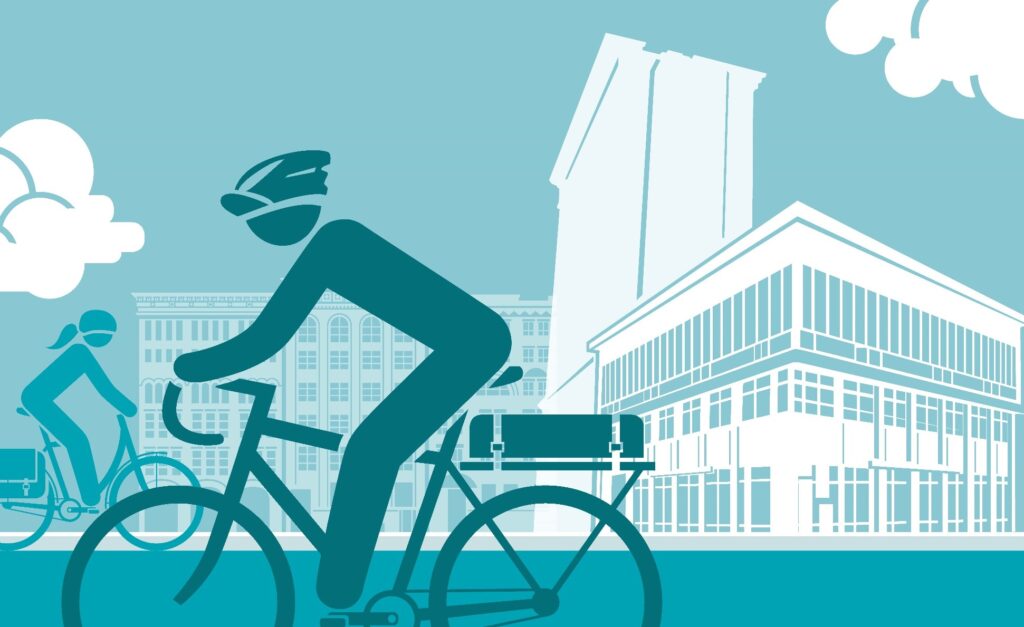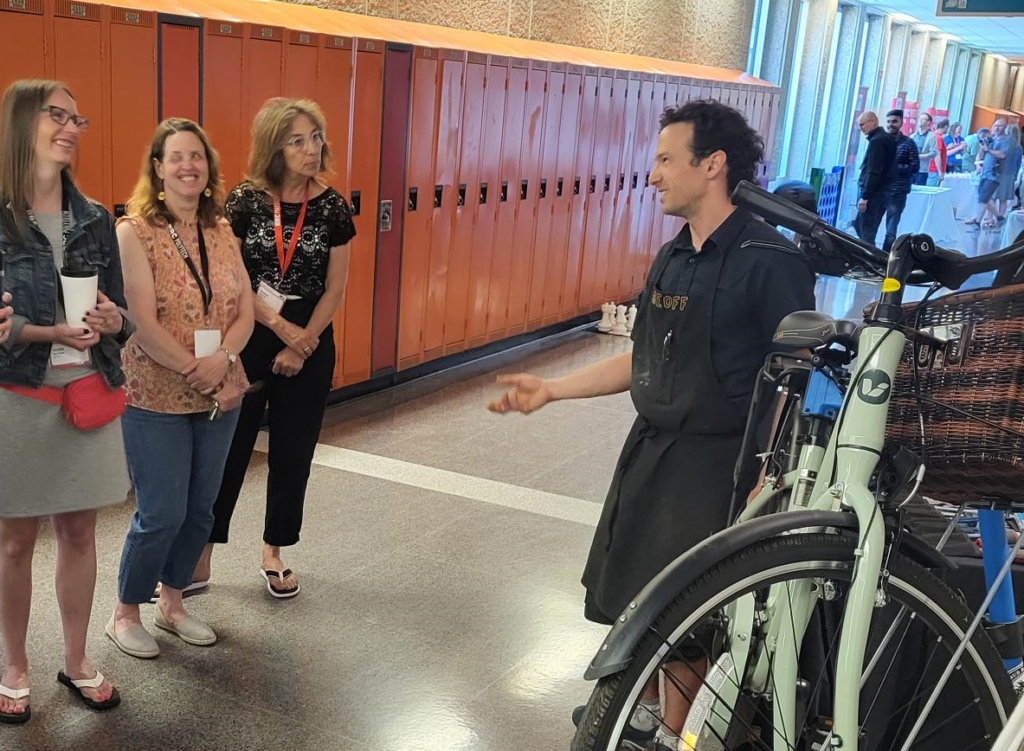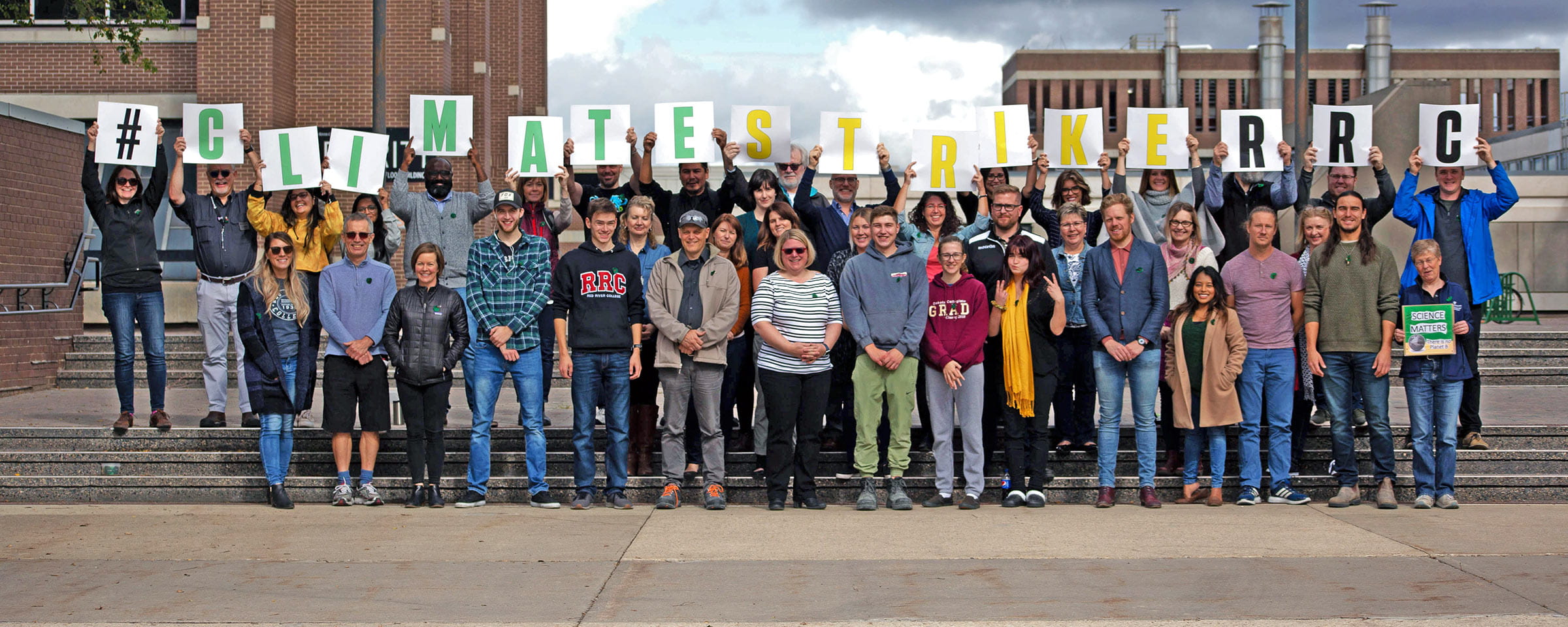Intro to Bike Commuting

The fall weather is fine and it’s a great time of year to try commuting by bike. Riding your bike to school or work is a great way to save some money, get some exercise, enjoy the outdoors, and show up to your destination awake and energized! The Sustainability Office would love to help you ride your bike to work for the first time or give you some suggestions on how to make your bike commute more enjoyable. Geoff Heath, our Environmental Initiatives Coordinator will be running a series of lunch & learn workshops on bike commuting over the next few weeks. The first workshops will be an intro to bike commuting covering the 7 topics we get asked about regularly by first-time commuters.
Bring your bike and stay after the workshop to take advantage of free basic bike adjustments and tune-ups for anyone who needs one!
Intro to Bike Commuting at Notre Dame Campus: Wednesday, Sept. 27th – 12:00-1:15 PM. Tune-ups until 2:30 PM – Prairie Lights meeting room
Intro to Bike Commuting at Exchange District Campus: Thursday, Sept. 28th – 12:00-1:15 PM. Tune-ups until 2:30 PM – P107 meeting room (Roblin Centre)
Please email Gheath@rrc.ca to register
If you aren’t able to make it out to the workshop, here’s a quick summary of some common bike commuting questions answered for you!
Where can I buy a decent, affordably priced bike?
Buying a used bike is a great way to save some money IF you know what to look out for and if you’re able to return a bike with unforeseen issues. There are several community bike shops in Winnipeg that sell re-furbished used bikes. Some commercial bike shops also sell used or consignment bikes. You can often find slightly cheaper bikes on Facebook Marketplace or Kijiji but be sure to test ride the bike, know how to identify any potential mechanical issues with it and to follow all safety tips for buying items online.
How do I find the best route for commuting by bike?
The google maps bike directions tool and biking map layer are both great resources for planning a route beforehand. That said, sometimes you’ll find helpful shortcuts, scenic trails or quiet back lanes that aren’t noted on any online maps. Try riding the route to work/school for the first time on an evening or weekend when you have lots of time to explore different streets and paths. Ask a cyclist friend to show you their preferred route through the area or email us in the sustainability office for help finding a “bike buddy” from your neighbourhood who also rides to campus and could take you along on their favoured route.
How do I keep my bike from being stolen?
The NDC and EDC campuses have a variety of secure indoor and outdoor parking options that include card-access bike rooms and rentable bike lockers. If locking your bike to a bike rack, use a good quality U-lock and learn how to properly secure your bike. If your bike has quick release wheels or seat, learn how to secure them too. Be sure to take a photo of yourself with your bike, as well as its serial number (usually under the bike’s bottom bracket) so that if it ever does get stolen you can report it and hopefully have it returned.
Do I need to know anything about fixing bikes to commute?

No, although you eventually may wish to learn more about basic maintenance and repair to diagnose and fix your own bike. To prevent breakdowns, take your bike into a bike shop for a full tune up and basic bike fitting before your riding season begins. If you’d like to learn more about how to DIY, the Sustainability Office offers a couple basic repair workshops every year, and EDC, NDC, Portage La Prairie and Stevenson campuses all have bike self-repair stations with a selection of essential tools. Topping up your tires and oiling your chain every few weeks will go a long way towards making your bike run quickly and smoothly, as well as extending the life of your bike’s parts.
How can I learn to be a safe & confident cyclist on the roads?
Picking a quiet, low traffic route goes a long way towards making riders feel safe, but most commuters must ride in traffic at some point on their route. Communicating where you’re going using hand signals, shoulder checking when changing lanes, staying visible with lights and clothing, and behaving like traffic while riding in traffic all make it easier for drivers to give you a wide berth. Finally, riding a meter from the curb will give you plenty of maneuverability for dodging potholes or puddles and will encourage drivers to safely move over to pass instead of squeezing by in the same lane. Riding on the road gets much easier with practice. Manitoba Cycling Association has some great short videos about road riding skills and safety, and MPI regularly offers cycling safety courses for adults. Check them out and we’ll see you at the bike rack soon!
